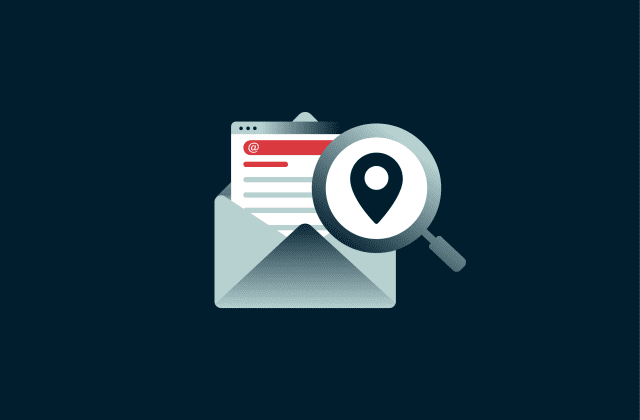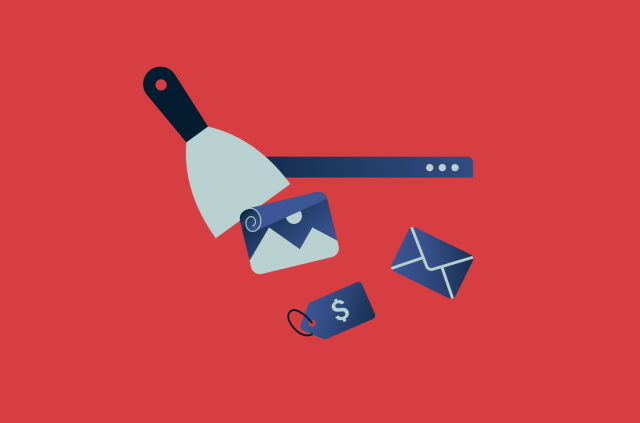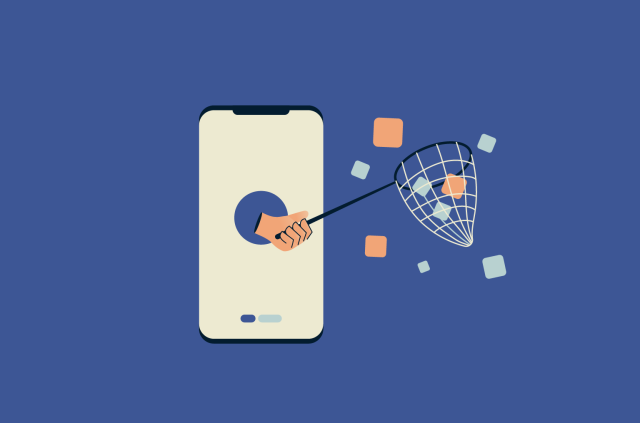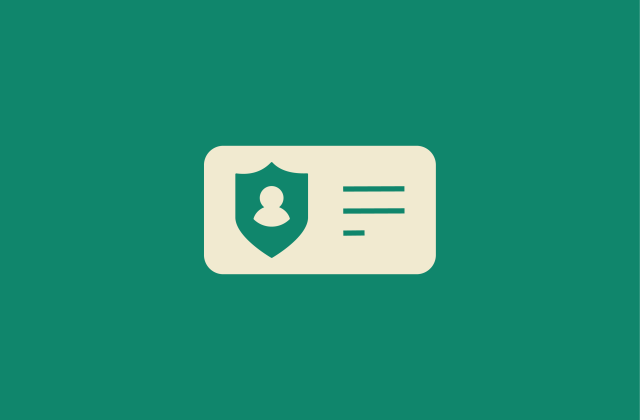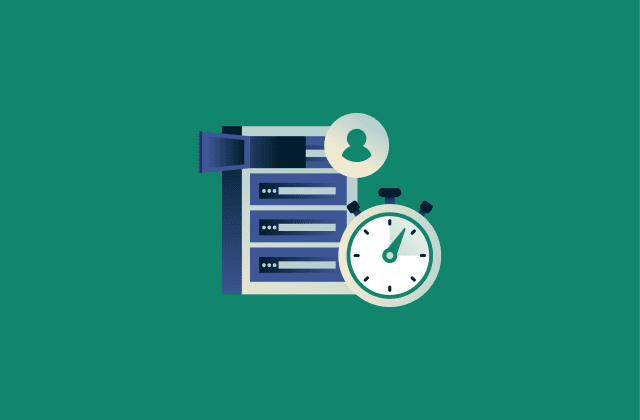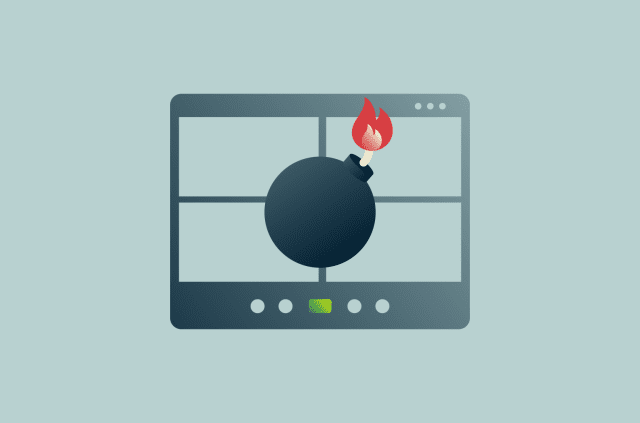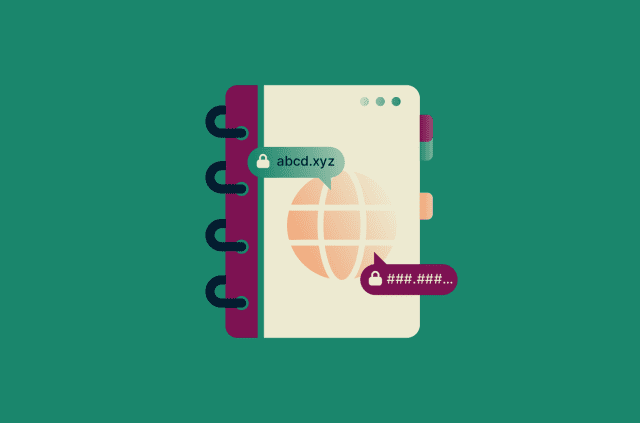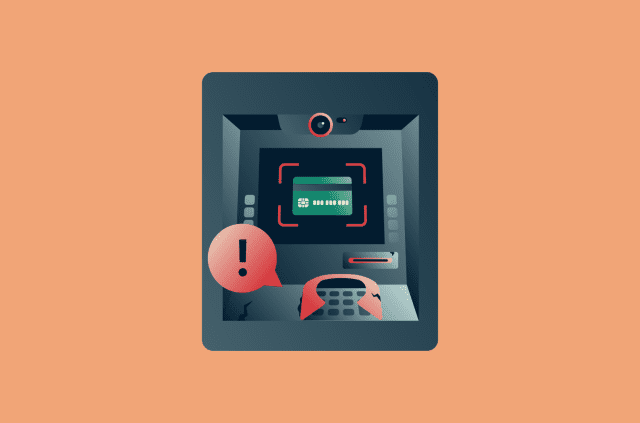Who can see my mobile data history?

More people can see your mobile data history than you might expect. Your mobile carrier, internet service provider (ISP), the websites you visit, and network admins can all see varying amounts of your online history. If you don’t take steps to mitigate this, your digital privacy may be compromised.
This guide will help you understand exactly what mobile data is collected and what you can do to increase your online privacy.
What is mobile data history?
 Mobile data history refers to the records that are created as you use your phone on a cellular network. This includes data about your calls, texts, and location, as well as information about the apps you use and websites you visit.
Mobile data history refers to the records that are created as you use your phone on a cellular network. This includes data about your calls, texts, and location, as well as information about the apps you use and websites you visit.
How mobile data is different from Wi-Fi
Mobile data and Wi-Fi use different infrastructure. Mobile data travels over licensed radio bands and is routed through a carrier’s cell towers. This provides wide‑area coverage for mobile device users.
Conversely, Wi-Fi uses unlicensed radio spectrum to connect devices to a nearby router, which then connects to the ISP of whoever operates the router. Wi-Fi is generally fast, but whoever controls the router has access to at least some of your data.
Most modern mobile networks encrypt traffic between your device and the cell tower. By contrast, Wi-Fi traffic isn’t always encrypted. Some public networks lack encryption entirely, while others may use weak encryption. With home networks, it depends on the security settings and the type of encryption configured on the router.
What counts as "history" in mobile usage?
Mobile usage history generally refers to the metadata that your device and carrier generate and collect as you use your phone. Most companies record the recipients of calls and texts along with timestamps, and location data is collected by logging the cell towers your device connects to.
The content of SMS and standard calls isn’t end-to-end encrypted, so technically carriers could access them if required (for example, with a warrant), though they don’t typically store content long-term.
With regard to the internet, mobile history includes data from apps, including web browsers. In most cases, your carrier can see the domains you connect to and when, but not the specific pages you load or content inside apps.
Who can access your mobile data history?
Various parties can see different aspects of your mobile history. Your phone company likely has access to the most information, but app developers, the websites and services you use, cybercriminals, and others might be able to see parts of your history.
Can mobile service providers track your data activity?
Yes. Among other things, your phone company probably tracks which cell towers you connect to, the web domains you visit, and more. This is done to ensure accurate billing and network management. Most data is automatically collected and sorted without human involvement.
When can governments and law enforcement see your data?
It varies depending on the country. In the U.S., law enforcement agencies generally need a judge to issue a warrant before obtaining records from a mobile carrier. Emergency exceptions, such as imminent threats to life, may allow authorities to gain limited access to your records without a warrant.
How do cybercriminals exploit your mobile data?
Additionally, mobile networks themselves are not immune to threats. For example, the Signalling System 7 (SS7) protocols used to route calls and texts on older networks lack proper authentication and encryption. This could allow criminals and other entities to intercept and redirect your SMS messages or track your physical location.
Phishing, malicious apps, and drive‑by downloads can all be used by threat actors to harvest your mobile data, including your browsing history. These attacks can result in the criminal eavesdropping on you, faking two-factor authentication tokens, or even gaining full access to your device.
What can apps access through permissions?
Modern phones lock access to sensitive information behind permissions. When you install an app, it may request access to the camera, microphone, GPS location, contacts, photos, calendar, call logs, or indirect access to other apps.
These permissions are used to support the app's functionality. For example, a messaging app with voice-to-text will require your microphone. However, some developers request non-essential permissions in order to collect data about users.
For example, a seemingly simple video game may request access to your call logs, text messages, or GPS location, even when these functions have nothing to do with the game. By granting unnecessary permissions, you expose aspects of your mobile data to third parties.
While some developers may use this data to enhance their products, others just sell users’ mobile data to other companies. Often, a company does both. For example, despite multiple scandals, Facebook still engages in aggressive data collection practices.
What search engines and websites know about your mobile use
Many popular search engines log every query you submit to improve their algorithms and to build a profile for targeted advertising.
For example, when you sign into Google, the company tracks your searches across Google Search, YouTube, and Maps and uses cookies to track your browsing across different sites. This data is used to show targeted ads and tailor content to your interests.
However, these companies often log more than just cookies. It’s normal for search engines to log your IP, long-term use patterns, device information, and connection type.
Websites also collect information through cookies and analytics scripts that can identify your device and record how long you spend on each page. Many websites share this data with Google in some way.
While these companies collect user data, most are bound by regulations that restrict how they can store and share certain kinds of sensitive personal data. Some data is also only stored in an anonymized form, but this doesn’t mean it can’t be used to track you.
Can anyone see my mobile data if I use incognito or private mode?
Private browsing modes are not a reliable means of keeping your mobile data private. They do not affect the mobile data your carrier collects.
What incognito mode hides (and what it doesn’t)
 Incognito or private browsing prevents your browser from saving your history, cookies, cached data, and form entries on your device. This means anyone who physically uses your device later on won’t see what you’ve been searching for.
Incognito or private browsing prevents your browser from saving your history, cookies, cached data, and form entries on your device. This means anyone who physically uses your device later on won’t see what you’ve been searching for.
It won’t have any impact on the data your phone carrier or ISP collects. Because your traffic still goes through its network, your phone company will still see your mobile data, including the domains you access. Additionally, search engines and websites will still see your IP address and tie searches back to you.
Can my ISP or mobile provider see my search history?
In an indirect way, yes. Your ISP (which is your phone company when you’re using mobile data) can see the web domains you visit. If you tap on a search result, your ISP will record the site you’re taken to. They won’t see the specific page you go to or what you entered into the search bar, but domains can still reveal information about your browsing that you’d rather keep private.
If you use a virtual private network (VPN), your phone company will still see that you have one enabled, but it won’t be able to see what you search for or the websites you actually visit. By opting for a service with a no-logs policy, you can ensure that not even the VPN company records your data about the sites you visit.
What information can mobile carriers and ISPs track
Carriers and ISPs maintain logs about what you do online. They log domains you visit, connection times, and data usage. They can’t see the specific content of encrypted pages or app activity, but the metadata they collect can still reveal patterns about how you use the internet.
Do ISPs and carriers sell your mobile browsing history?
In many places, including the U.S., there is no comprehensive law prohibiting ISPs and mobile carriers from selling anonymized browsing data.
U.S. providers may legally collect and sell customer data to third parties, often in anonymized or aggregated form, provided they meet basic privacy standards.
That said, some U.S. states and the EU enforce stricter rules, making it illegal to sell user data without explicit consent.
Can public Wi-Fi or Wi-Fi admins see what I do?
Using Wi-Fi comes with privacy concerns distinct from those faced when relying on mobile networks. The biggest privacy risk comes from the fact that administrators can see lots of data about connected devices.
Mobile vs. Wi-Fi privacy differences
 Mobile networks and Wi-Fi both expose your data to different parties. Mobile data travels over licensed networks back to your phone company and is generally encrypted, which makes remote interception highly unlikely, though not impossible with specialized tools; typically expensive, law-enforcement-grade International Mobile Subscriber Identity (IMSI)-catchers. With physical access to your device, however, someone could still manually view your browsing history.
Mobile networks and Wi-Fi both expose your data to different parties. Mobile data travels over licensed networks back to your phone company and is generally encrypted, which makes remote interception highly unlikely, though not impossible with specialized tools; typically expensive, law-enforcement-grade International Mobile Subscriber Identity (IMSI)-catchers. With physical access to your device, however, someone could still manually view your browsing history.
The level of privacy afforded by a Wi-Fi network largely depends on how it’s configured: a properly secured network using Wi-Fi Protected Access 3 (WPA3) encryption helps maintain your privacy, but open or poorly configured networks are vulnerable. If someone gains access to the network, they could spy on the traffic or even inject malware.
What network admins can monitor
Network administrators, including employers, parents, and schools, can view a lot of data about traffic passing through the networks they monitor. Some knowledge is required to parse these records, but it doesn’t require expertise.
Because of this, they can see the IP addresses and domains that everyone connected to the network accesses. The dates and times of connections and data flow can also be logged and reviewed. Some monitoring tools even identify which applications are in use.
Even when sites use HTTPS, the administrator can still see the destination domain, even if they don’t see the site-specific content. They can also see specific system events and connected devices.
How to keep your mobile data history private
Complete anonymity is unrealistic, but there are simple practices that can improve your overall privacy.
Use a no-log VPN
A virtual private network (VPN) creates an encrypted tunnel between your device and a remote server. When you connect through a VPN, your ISP or mobile carrier can only see that an encrypted data stream is flowing between your device and the VPN server. The timing and volume of data sent may be recorded, but neither party will be able to see the websites you visit or other details of your connection.
Not all VPNs provide the same level of privacy protection. Just like phone companies and ISPs, some VPNs collect lots of data about how customers use the service. For that reason, it’s best to choose a provider that operates under a no-logs policy. ExpressVPN is designed not to log your data, sell it to third parties, or retain connection records.
Using a VPN will not stop apps or search engines from recording your activity (though some, like ExpressVPN, do block third-party trackers by default). It also won’t prevent your phone company from logging your location or information about your texts and calls. This is because these functions rely on a separate network from the one you use to access the internet.
Turn off app tracking and permissions
Both Android and iOS let you control how apps track you. You should restrict cross‑app tracking in your phone’s settings to minimize the extent to which companies can link your activity across different apps. Additionally, regularly review your apps' permissions, including location, contacts, microphone, camera, call logs, and storage. Revoke any access that isn’t strictly necessary to minimize your mobile data footprint.
Use privacy-focused browsers or search tools
Traditional search engines and browsers collect detailed behavioral data to profile users for advertising. Conversely, secure browsers reduce trackers, collect minimal browsing data, and include other privacy protections.
For example, DuckDuckGo does not log searches or build user profiles. Browsers like Brave include built‑in tracking‑protection features. Some privacy tools also block third‑party cookies and fingerprinting scripts. While no browser can completely protect you, coupling a secure browser with a VPN with a no-logs policy can significantly reduce tracking.
Avoid risky public networks
Open Wi-Fi networks at cafés, airports, and hotels can lack adequate protection. Techniques such as man‑in‑the‑middle (MITM) attacks and packet sniffing can help criminals intercept credentials or inject malware onto your device. When you’re in public, it’s best to use mobile data instead of public Wi-Fi whenever possible.
If you need to use public Wi-Fi, you can mitigate many of the risks by connecting to a VPN.
FAQ: Common questions about mobile data history
Can anyone see my history if I use mobile data?
Your provider can see your metadata, like which numbers you call, the amount of data you use, the domains you visit, and which cell towers you connect to. While they don’t usually store message content, SMS and calls aren’t encrypted like internet traffic, so in theory carriers or law enforcement (with a warrant) could access them.
Can a Wi-Fi owner see my activity if I’m on mobile data?
No. When you use your mobile data, your traffic bypasses the Wi-Fi network. The owner or admin can’t see your activity because it isn’t traveling through their equipment. However, your carrier can still see metadata and track some of your activity, as can the sites you visit.
Can my mobile provider see my browsing history?
Your mobile provider can see the domains you visit, but they cannot view specific pages you access or read any encrypted content. This means they record the basic details of the websites you visit, but they won’t see every individual page you’ve loaded. Carriers also keep records of how much data apps use and when connections are established.
Does Incognito mode hide my history from providers?
No, Incognito or private browsing mode only clears local history, cookies, and cached data. It does not prevent your internet service provider (ISP), mobile carrier, employer, or the websites you visit from seeing your activity. To more thoroughly privatize your internet use, your best option is to use a virtual private network (VPN).
Can police recover deleted mobile browsing history?
Deleting your browser history only removes it from your device. Mobile providers retain logs for months, sometimes years, and law enforcement can subpoena them with a warrant.
Providers generally do not store users’ full history but do record the domains each customer accesses. Authorities can also obtain data from search engines or websites if they have legal grounds.
Deleting your mobile browsing history on your device does not provide meaningful protection if the police aim to view your history.
Can my parents or employer see what I do on my mobile?
If you use a Wi-Fi network controlled by your parents or employer, they can see the domains you visit, the times you connect, and potentially the types of applications in use. While they can’t read your encrypted messages directly, they may be able to infer a lot based on patterns.
You should assume that whoever controls your network can see the general picture of what you do online.
Is my data still visible if I use a VPN?
A virtual private network (VPN) encrypts internet traffic between your device and the VPN server. Your internet service provider (ISP), some services, and Wi-Fi admins can see that you’re using a VPN, but not what you’re doing with it. A VPN also does not prevent search engines or websites from tracking you through cookies or account logins.
Does deleting my browser history erase it from mobile provider logs?
Deleting your browser history only removes locally stored entries. It does not affect the logs kept by any services that already have them.
How can I hide my mobile data activity from others?
You need multiple tools to improve privacy. You should consider using a no-logs virtual private network (VPN) to encrypt your traffic and mask your IP address. You can also remove app permissions for services that you don’t need to limit the overall amount of data being shared.
You might also want to use a secure browser or search engine, as these collect and share less user data than mainstream alternatives. Finally, keep your devices up-to-date with the latest patch and use two‑factor authentication wherever possible.
Can someone see your search history if you delete it?
Yes, deleting your search history does not erase the copies held by search engines, websites, or your internet service provider (ISP). Search engines and ISPs typically keep these logs to improve their services and for advertising, but they can also be acquired by law enforcement. These records are usually deleted or anonymized after a retention period that varies by provider and jurisdiction.
Take the first step to protect yourself online. Try ExpressVPN risk-free.
Get ExpressVPN



